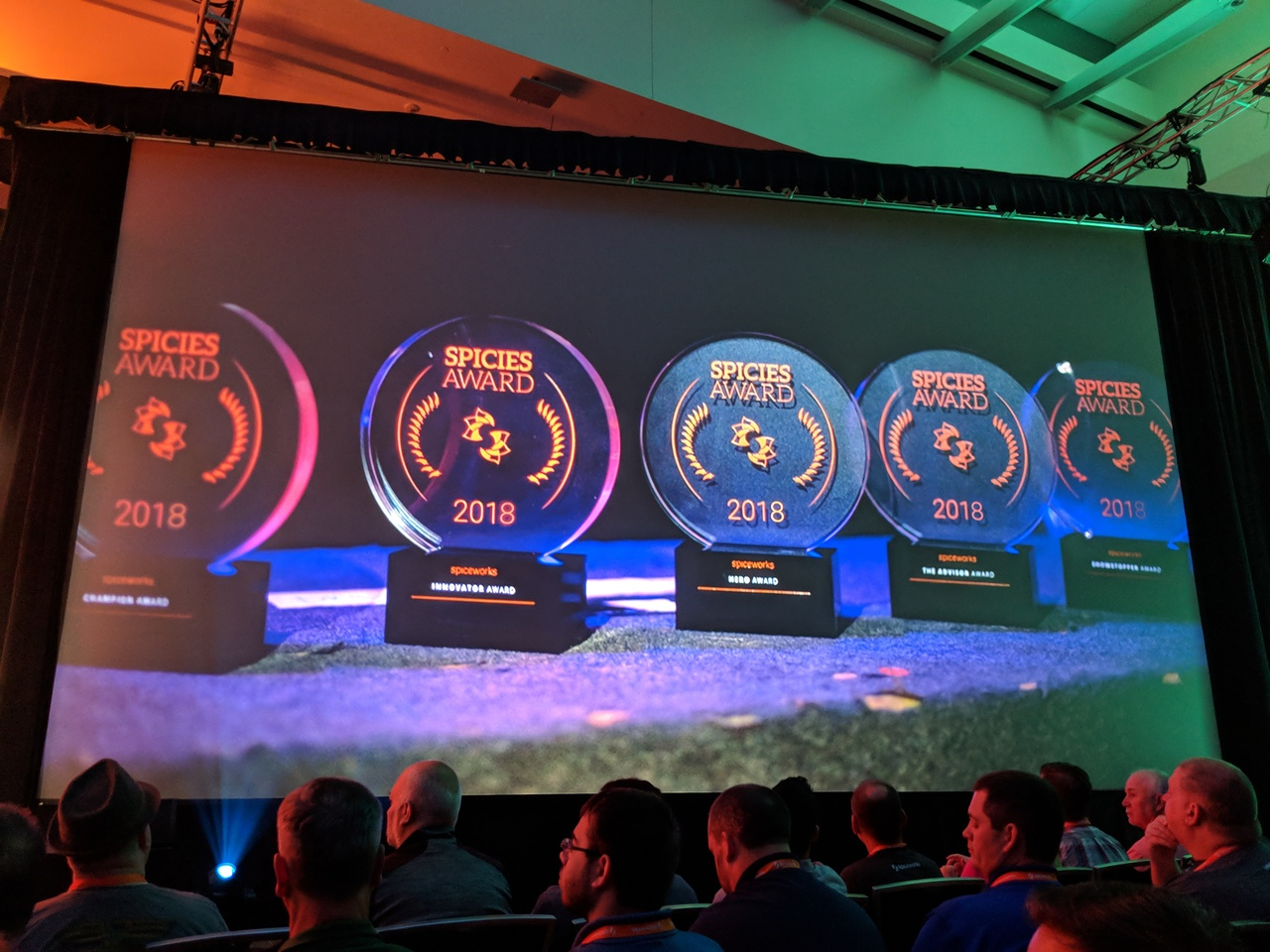Spiceworks Ecosystem Shows The Power Of A Market Orientation

A refreshing discovery at Spiceworld 2018, Spiceworks' annual tech conference, was vendors with an excellent market orientation.
A quick refresher on what market orientation means: It's about focusing on the needs and desires of your customers, not on yourself. (Get a more technical definition over at Investopedia if that's more your speed.)
This sounds obvious, but I see so many products that are created by engineers or marketers who mistake what they think is important for what customers actually care about. A lot of the pitches at the big tech conferences are all about what makes the company's products great, but it's often detached from customer benefits, and when it isn't, those benefits are frequently somewhat detached from reality.

So it was an extremely pleasant experience to hear Spiceworks CEO Jay Hallberg talk about customers for the first two thirds of his keynote opening the conference. Awards (called Spicies) were given to Spiceworks community members who had made significant contributions, and the feeling in the room was one of supportive cheerfulness. The audience not only agreed that these people deserved to be recognised, they enthusiastically joined in.
This is the kind of stuff I usually only see at the more progressive developer conferences, and it's no coincidence that Spiceworld had a far higher proportion of women in attendance than most tech conferences. Not just vendor sales people, actual customers who were there to learn and meet with people.
The theme continued with vendors I interviewed.
Backblaze is a company I've tracked for a while, since writing about how they shucked disks due to tight availability after the 2011 floods in Thailand. They're also famous for regularly releasing a surprisingly readable report on hard drive reliability based on data from their own datacenters.
“We would love other companies to release this kind of data,” said Backblaze Director of Marketing Yev Pusin. “We believe this kind of transparency would benefit the entire industry.”
Backblaze is privately funded, apparently quite profitable, and apparently not motivated by purely making money. Profit is a means to an end: providing even better products and services for customers. It's rhetoric we hear from many other companies, but their actions don't match their words. The impression I get from Backblaze customers is that the company does indeed live up to its promises, and has a loyal following as a result.
Remote monitoring company Pulseway, a company I'd never heard of until meeting CEO Marius Mihalec, is also quietly focused on its customers and achieving great success. Its freemium model aimed at small- to mid-market customers means it has racked up over 4,500 customers since being founded in 2011.
“We basically didn't spend anything on marketing,” said Mihalec. “We once got a positive mention on the XDA Apps forums (a website dedicated to mobile app development) and that drove quite a lot of traffic, but we've only just started coming to shows like Spiceworks.” Growth has come mostly from word-of-mouth and an impressive 30% conversation rate from the free product to a paid offering.
“We just want to make IT Pros heroes,” Mihalec added.
Mid-market backup specialist Carbonite is also listening carefully to its customers. Norman Guadagno, Senior Vice President of Marketing, stressed that feedback from customers was at the core of its recent rebranding efforts. “We'd made several acquisitions—EVault, DoubleTake and more recently Mozy—and needed to ensure customers got a consistent, integrated experience,” he said.

The approach is working, with yearly and quarterly revenues trending up. The most recently quarterly results of $77 million indicate Carbonite is likely to substantially exceed FY2017 revenues of $239.5 million in FY2018.
It seems like such a simple recipe for success: listen to your customers and build something they find valuable for less money than they're willing to pay. Rinse and repeat.
So why aren't more companies doing it?
I attended Spiceworld 2018 as a guest of Spiceworks. You can read my full disclosure about the trip here.
This article first appeared in Forbes.com here.